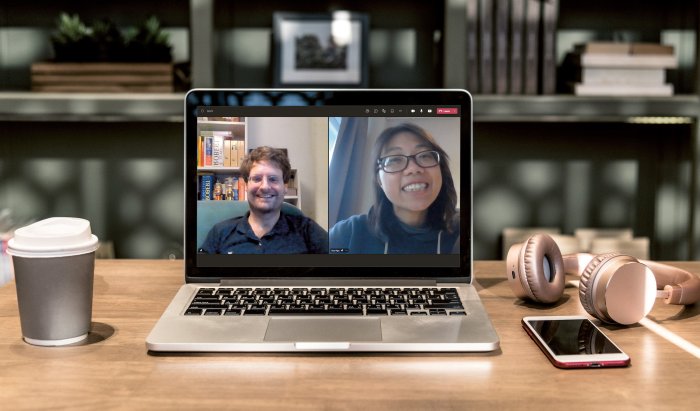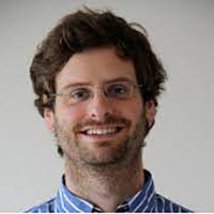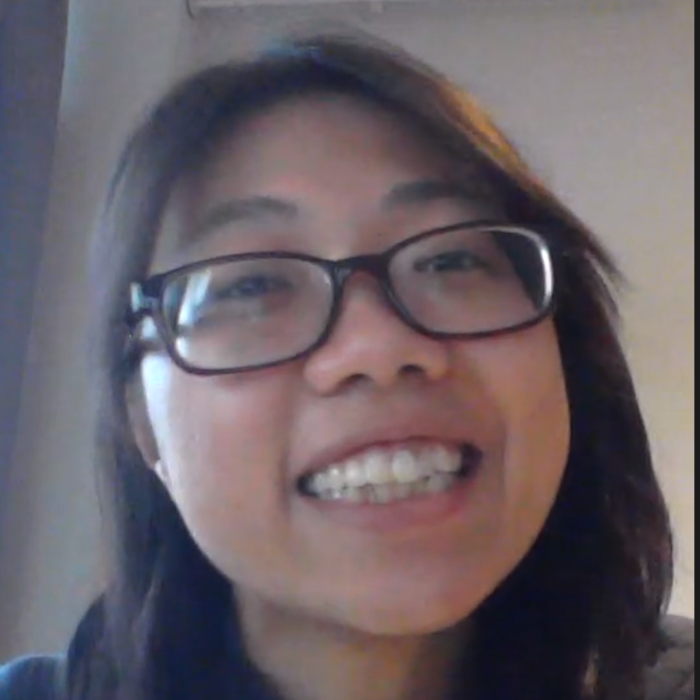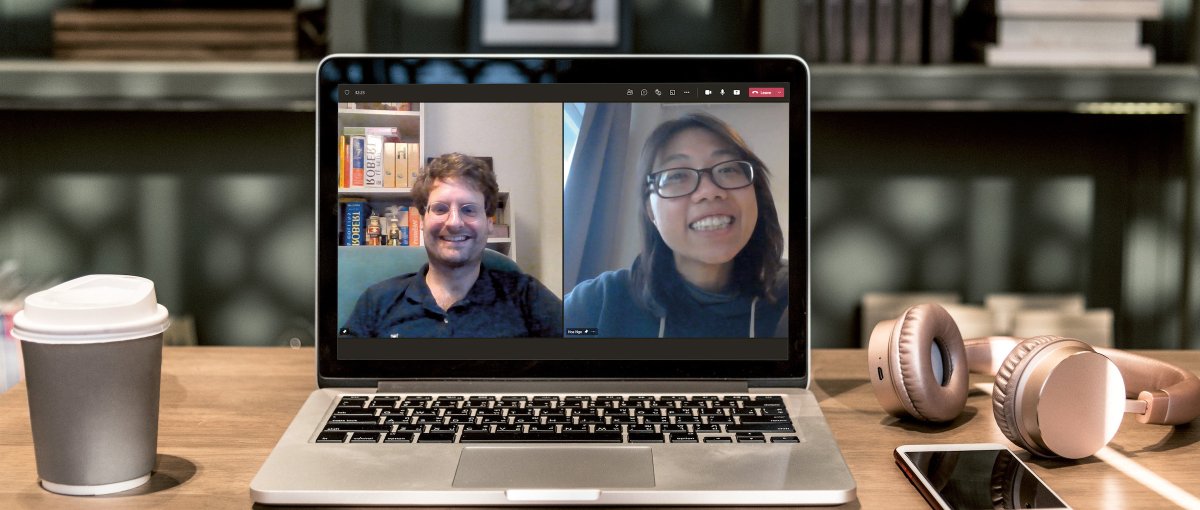Staff-Student discussion
Dr Mathias Rieger and student Hoa Ngo talk about the collaboration between ISS and the University of Economics Ho Chi Minh City with the Double Degree in Development Economics programme
Staff-Student discussion
(Matthias): Thanks for agreeing to this discussion about your experience at ISS and the double degree programme. Could you tell us a little bit about yourself? Your background, what you studied in Vietnam?
(Hoa): Thanks, Matthias. My name is Hoa Ngo and I was born and raised in North Vietnam. Before studying at ISS, I did a bachelor’s degree in finance and banking. I then worked for five years in the south of Vietnam in market and customer research.
(M): And then you started studying at UEH, right?
(H): Yeah. After three or four years of working in market research, I began to feel that although I really liked my job and enjoyed carrying out analyses and gaining insights from them, the implications of my work were not very ethical. For example, if I suggested a particular financial product to a customer, they would probably buy it and so spend more. This is great for business, of course, but not very sustainable for the economy. I started to think that I should do something with more social impact so began browsing Master programmes in social development with economics as that resonated most closely to my bachelor background. I came across this programme at the University of Economics in Ho Chi Minh City offering the double degree with ISS. It's also possible to combine the programme with a job so it was the best of both worlds: I could continue earning while studying. I must say, though, that it became quite difficult to balance both at the same time.
(M): How were the classes at the University of Economics in Ho Chi Minh City? Do you have any interesting insights?
(H): The classes were very small, just like at ISS. The lecturers are very well selected: they have a broad knowledge, not only in their field, but also in how to apply it to the Vietnamese context. I think that is what I appreciate the most because I feel like I now have a different perspective on my country. I used to think of Vietnam as a developing country but the programme broadened my view. I now realise that many of the things that Vietnam has already done have been very effective. I have learned that Vietnam has its own way of doing things and not everything that a Western country does is great or effective. An example is the difference between democracy and the autocracy that is evident in Vietnam right now. The programme gave good insight into that through data and statistics and was a real eye opener.
(M): You moved to the Netherlands for the second part of the double degree. Can you explain a little bit how that transition went? How you settled in the Netherlands?
(H): The double degree offers the opportunity to finish the programme in the Netherlands at ISS. I had to consider whether to do that because the pandemic situation was good in Vietnam at that time with everything remaining open. The Netherlands, on the other hand, was in a very hard lockdown. And the weather's really cold in the Netherlands!
But I think that to live and study in a new country brings a lot of experience. This is especially true at ISS because of the very diverse community here. Also, coming to the Netherlands would be the first time that I had ever lived in a place where I had to speak English all the time. In my job I also worked a lot with expats, but still met Vietnamese people outside so talked in my native language. I thought that having to speak in English all the time would be a new experience and decided to go for it.
At that time, I still thought that after finishing the programme I would go back to Vietnam because there's still a lot to do there. I was fascinated with technology and Vietnam was going through a tech boom, with foreign direct investment in tech companies. I was working in FinTech at the time and I think this offers a lot of potential for our country.
I arrived in the Netherlands in the middle of January 2021 when it was really cold. I think it was the first time in about 10 years that it had snowed in the Netherlands and it was the first time I had seen snow. I was really excited on the first day but by the next, mwah ....!
(M): How was academic life at ISS? What do you remember most or what did you appreciate most about the courses, the teachers and the institute as a whole?
(H): I have to say that at first it was a bit boring because everything was on Zoom. Also, I did not accept a room in the ISS dormitory so it was also rather lonely. I think I made a wrong decision in not accepting a room in the dormitory, but I managed. Then I joined a class about local development promotion that really changed a lot of things for me; from my thinking and my perception of the world to how I interacted with my peers at ISS. That course was led by Dr Georgina Gomez. The course is given in collaboration with the Hague University of Applied Sciences (THUAS) so we had an even more diverse group of students. Students from THUAS have more practical experience and are very active in business, whilst students from ISS have a very good theoretical approach and reasoning in relation to different issues in society. I really liked that because I learned from both worlds.
Georgina also organized group activities: we had a lot of project work and had to learn how to work and cooperate with people from different backgrounds. It was the first time I had ever worked with people from Latin America, from Africa. And I had to try really hard to communicate because sometimes English can sound very different with different accents. Overall, it was a very nice period. Once we had learned to communicate with each other, we come up with really good projects. I am still proud of our product because we each had different strengths which we brought into the project.
(M): At ISS you were enrolled in the Economics of Development Major. Do you want to say a little bit more about the Major? What makes it special and how is it different from other Majors at ISS?
(H): The Economics of Development (ECD) Major is very different from the other Majors because we focus quite a lot on data and statistics. There's a joke that when all the Majors come together none of the students from the other Majors understand what we from ECD are talking about because we focus on qualitative research whereas they focus more on qualitative research. So when we talk about how we get our insights, how we understand issues, it is difficult for other Majors to understand us. What I see now, when applying for jobs, is that the skills ECD taught us are the skills that the real world needs.
(M): So you're saying that the skills you learned are also very helpful in the real world in terms of getting a job?
(H): Yes.
(M): Before we move on to what you are doing now, I wanted to ask a little bit more about your Research Paper (RP) because I know you got a prize for it. Do you want to explain what you did in your RP?
(H): Yeah, I was really surprised to get the prize. I think I was just lucky and got the prize because of the technique I applied, right?
(M): No, you got the prize because you wrote a very innovative and technical RP that not everyone can do. So let's talk about what the RP was about: what did you do in the RP, what was the research question?
(H): My RP was about using the online price of products that are also sold in supermarkets or by multi-channel retailers to measure and track inflation and see whether the pandemic had an impact on the price of products. I used a case study of a multi-channel retailer in Vietnam during the biggest wave of COVID-19 infections, namely from May till November 2021. I think the innovative method that you mentioned refers to how I collected the data. I used a web scraper constructed by Python scripting. This scraper helped me to collect the data daily from selected websites. For example, there are two supermarkets in Vietnam called Mart and Winmark, and every day the web scraper accessed their websites, scraped 6,000 or 7,000 products from their websites and stored this data in an excel file. I analyzed the data to investigate how the price of various products changed over time, thus allowing me to reflect on inflation in the Vietnamese economy. I used that information to see whether an increase in the number of COVID-19 infections had an impact on the consumer price of goods.
(M): Excellent. It was a fascinating piece of work and extremely innovative in terms of technique, but also in terms of topic with huge implications for policymakers. It's not easy to collect prices during a pandemic, so collecting them online was a good option.
I have one final question before we come to the end of the interview. What are you doing now that that you have graduated? And how did the double degree and your experience at ISS help you find a job? Are you applying your new skills in your current job?
(H): Yes, currently I'm working for Ikea as an insight specialist. I work on a social commerce project, helping Ikea to evaluate a new digital customer meeting point. We carry out lots of tests, such as selling products via social media, across different markets or different channels. I evaluate the performance, then look at how the customer feels and how brand perception changes after customers experience shopping using a specific channel. I also support the team’s research needs. So, for example, before they carry out one of these tests, they have to understand the baseline of customer behaviour, how they use social media. I collect all that information for them.
I got this job through a third-party recruiter. It’s a very short-term project, running for only three-quarters of a year so they wanted someone who already had some experience in this type of work. As I said before, I have five years’ experience in customer research but I think the reason they choose me is because I know how to deal with multicultural projects and work in a multinational environment.
One of the most important skills that I learned at ISS is to take a more methodical approach to a research question and how to find information to form a baseline for the next step. Previously, I used a methodology based on previous company knowledge, so people who had done similar work before passed their knowledge on to the next generation. But at ISS I learned a more academic approach. I learned to identify limitations in specific approaches and improve them. That is the most important thing that ISS taught me.
(M): You're planning to stay in the Netherlands for a little bit longer. So where do you see yourself in 10 years?
(H): That is a very big question. I have never really asked myself that. I think that now I will just go with whatever opportunity comes my way, as I did with the opportunity to study at ISS. I hadn't planned it, but when the opportunity came, I thought it would be a very interesting journey. So now I am open to anything that might give me the opportunity to learn and to explore new things. I think that's the best plan.

Download Hoa Ngo's Research Paper 'Using online prices for inflation estimation and pricing behavior research'
Staff-Student discussion

Matthias Rieger is Associate Professor at ISS. He conducts research and teaching on Development Economics, Health Economics and Behavioural/Experimental Economics

Hoa Ngo is a recent alumna of the Double Degree in Development Economics. She won a research prize for the MA research paper on the use of online prices for inflation estimation.
